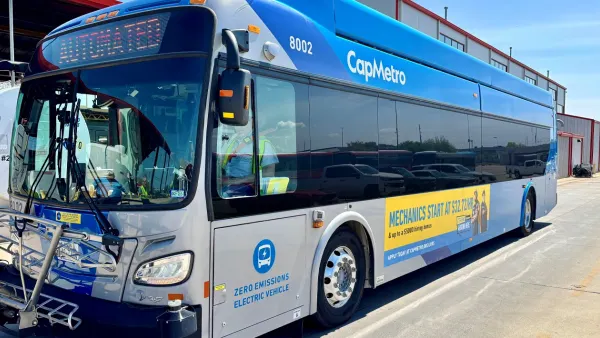Dive Brief:
- Chicago has published comprehensive data from ride-hailing companies including Uber, Lyft and Via on its open data portal.
- The data sets provide the public with information about ride-hailing trips, drivers and vehicles. The city reports that it took the key step of removing sensitive personal information to maintain driver, rider and company privacy.
- The data sets will be updated quarterly as ride-hailing companies share their information with the city. It is published in a similar manner to the taxi data already on the open data portal.
Dive Insight:
Last month, a transportation task force commissioned by Chicago Mayor Rahm Emanuel released a report containing more than 50 recommendations to improve mobility within the city. It included recommendations such as launching an e-scooter pilot program and an autonomous vehicle (AV) pilot. Another recommendation was to develop uniform, comprehensive and secure transportation data sharing between public and private entities. Publishing ride-sharing information on the city's open data portal falls in line with that guidance as well as the city's goal of providing greater overall data uniformity and transparency.
“Making comprehensive and secure data available to the public is a fundamental element of good governance and a pinnacle of this administration,” Emanuel said in a statement. “With this information, we will better understand our transportation landscape and be prepared to solve future mobility problems.”
The ride-hailing trip data includes starting and ending locations, starting and ending time rounded to the nearest 15 minutes, fares rounded to the nearest $2.50 and tips rounded to the nearest dollar. Driver data includes the month the person began as an employee, what city they live in and how many trips they have completed. Vehicle data includes total trips completed, month of last inspection and vehicle make, model and year.
The gathered information can help Chicago leaders better understand ride-hailing use, customer needs and how the services affect the city. The extra mobility knowledge could help inform policy changes or opportunities for future partnerships. For example, the city says the number of ride-hailing trips in traditionally underserved communities has doubled since 2015; greater data analysis might uncover ways to continue or expand that trend.
Cities are increasing their data collection and analysis, but citizens aren't always on board with the information sharing, and some fear privacy breaches. Savvy cities therefore ramp up their transparency and accountability along with data collection. Chicago, New York City, Nashville, TN and Honolulu are among the cities that have various types of citizen-facing dashboards to display portions of the collected information. Fostering transparency and data privacy is one way to build trust with residents, which experts say is critical to ensure a city thrives and grows.











